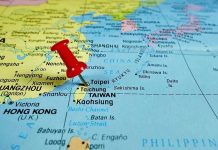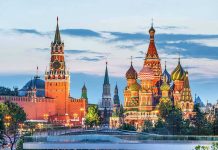
The AstraZeneca scandal in China reveals a story of fraud, leadership turmoil, and potential global repercussions for the pharmaceutical giant.
At a Glance
- Executives face prison for fraud; former chief Leon Wang detained.
- AstraZeneca’s international growth challenged by scandal in China.
- China remains a vital but troubled market for the company.
- Allegations of insurance fraud impact financial and reputational standing.
Leadership Changes Amidst Scandal
AstraZeneca appointed Iskra Reic as the executive vice president for international operations amidst an investigation into Leon Wang, its former international head. The investigation’s focus is on alleged medical insurance fraud in China. Reic now oversees strategy across key markets outside the United States, a role complicated by the company’s embroiled situation in China, where it faces significant legal and reputational challenges.
China has long been a significant market for AstraZeneca, reporting a 7% increase in revenue last year totaling $5.9 billion. However, the detention of Wang has caused shares to fall by 8%, equating to a $14 billion loss in market value. These financial ripples hint at the broader impact the investigation may have beyond China’s borders. With China’s role as the largest revenue generator for the drugmaker outside the U.S., this turmoil affects AstraZeneca’s broader corporate strategies.
Allegations and Investigations
The fraud allegedly involved falsifying reports to offer insurance coverage for the lung cancer drug Tagrisso to ineligible patients. With over 50 regional managers and sales staff implicated, investigations span eight provinces since 2021. The ramifications are not limited to legal repercussions but stretch to damaging corporate reputation, prompting a class action lawsuit in the United States, which claims AstraZeneca made misleading statements concealing legal and regulatory risks in China.
AstraZeneca previously agreed to a $355 million settlement for falsely marketing a cancer drug and pleaded guilty to healthcare fraud. This historical context shadows the current allegations and reinforces investor skepticism about the company’s operational ethics. China’s allegations echo past worries, challenging AstraZeneca’s efforts to reform and reposition itself as an ethical market leader.
Navigating Future Challenges
The scandal’s repercussions question the company’s rapid expansion strategy in China and signal potential reforms needed to regain trust. Global investors watch cautiously as AstraZeneca addresses these ethical challenges, balancing reforms and maintaining leadership within one of its principal markets. Industry insiders acknowledge such scrutiny can exert “extreme pressure” on companies, impacting strategies and relationships with healthcare providers.
“We want doctors to prescribe what is best for their patients and not what is best for the doctor’s bank account.” – Richard G. Andrews
The developments in this case are critical for AstraZeneca and multinational companies operating in stringent regulatory environments. This situation underscores the importance of corporate governance, ethical compliance, and strategic agility to adapt to evolving market demands and regulatory landscapes.
Sources:
- AstraZeneca Names New International Operations Lead Amid Probe on China Exec – BioSpace
- AstraZeneca Pleads Guilty In Cancer Medicine Scheme – The New York Times













